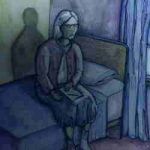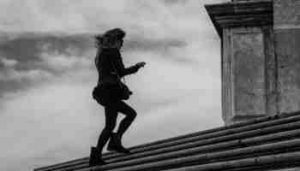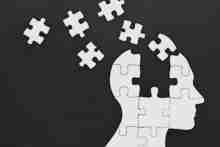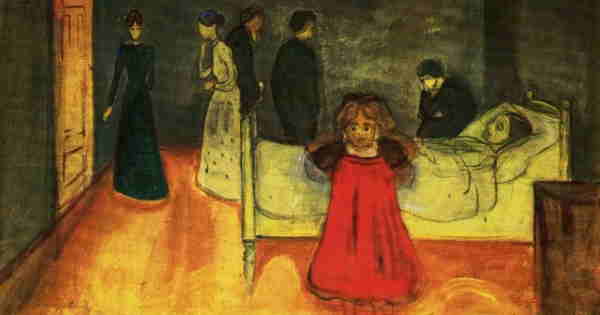Wanted – a good death!
February 13th, 2020 | Published in Euthanasia; Suicide
Lisette Nigot was healthy. She had enjoyed “a good life” but, nearing 80, she had “had enough. She wanted a good death.
 Lisette died on 18 November, 2002, from an overdose of medication she had bought in the United States. It was two weeks before her eightieth birthday, and three weeks after her final meeting with Doctor Philip Nitschke, whose stated mission, as founder of Exit International, is “to inform members and support them in their end of life decision-making”.
Lisette died on 18 November, 2002, from an overdose of medication she had bought in the United States. It was two weeks before her eightieth birthday, and three weeks after her final meeting with Doctor Philip Nitschke, whose stated mission, as founder of Exit International, is “to inform members and support them in their end of life decision-making”.
In her suicide note, Lisette wrote: “I am not ill or in pain or depressed. I am of sound mind”.
Her story is told in a 90-minute documentary film, Mademoiselle and the Doctor, available from the Exit website. This post reviews the film, and also draws on additional material about Philip Nitschke and his organisation.
“Mademoiselle” (Lisette Nigot) exemplifies rational suicide (defined as “the unassisted but well considered death of a mentally competent adult who may or may not be suffering from a serious medical illness”).
 Her conversations with Philip Nitschke (“the Doctor”) are the connecting thread of the film. Additional themes include Dr Nitschke’s contribution to assisted dying while it was (briefly) legal in the Northern Terrritory (from 1 July 1996 for 9 months), his early Exit workshops, his visits with terminally ill patients in medical settings, and the backlash against him from media and medical establishments and anti-choice lobby groups.
Her conversations with Philip Nitschke (“the Doctor”) are the connecting thread of the film. Additional themes include Dr Nitschke’s contribution to assisted dying while it was (briefly) legal in the Northern Terrritory (from 1 July 1996 for 9 months), his early Exit workshops, his visits with terminally ill patients in medical settings, and the backlash against him from media and medical establishments and anti-choice lobby groups.
“Mademoiselle” Lisette Nigot’s life
Lisette Nigot and her sister were brought up by their grandmother as Catholic. Lisette gave up religion when she was nine because she was punished for eating a sausage on a Friday, something forbidden for Catholics. Religion had never gone deep for her, and she thought the prohibition against eating meat on Fridays was too silly.
She led what she described as three lives; first in France, then the United States after World War II, and thirdly in Australia from 1967.
She studied at the Sorbonne and the University of Chicago, describing the US as the “land of plenty and freedom” after her life in occupied France.
She worked, for some time, as promotions manager at the Waldorf Astoria Hotel in New York and, for a longer time, as an academic. She retired from the Department of French Studies at the University of Western Australia in 1987 (fifteen years before her death). In 1995, she received the highest French academic award – the Office of the Palmes Academiques.
She could, she said, have married many times, but saw no point when she didn’t want children.

The means of a peaceful death
Lisette was a member of the voluntary euthanasia society in Western Australia.
She attended one of Philip Nitschke’s workshops, and also had personal meetings and correspondence with him.
She made and demonstrated her own ‘exit bag’, as well as having ample supplies of lethal medication.
She would not have qualified for euthanasia under the Northern Territory law, but thought “anybody over 70 should have access” to the means of a peaceful death. She was ahead of her time, and well ahead of the relatively restrictive voluntary assisted dying (VAD) legislation that has since become available for some terminally ill patients in parts of Australia.
Parliamentarians in the Netherlands, on the other hand, are currently discussing legalisation of voluntary assisted dying “at the end of a full and completed life”.
Do you agree with Lisette Nigot (among others) that anybody over 70 (or some other age) should have access to the means of a peaceful death?

Whose death is it?
Philip Nitschke provides information about reliable and peaceful ways of bringing about death for those who want autonomy and do not want end of life decisions controlled by the medical profession (or any other sociopolitical institution).
“Everyone’s trying to medicalise death,” he says, “turn it into a disease.”
Nitschke’s involvement in the Northern Territory process led to his shift away from the legislative approach. The NT law provided an option for four people but, he says, the legislative process “puts people through hoops”, and leaves decision-making in the hands of doctors.
He founded Exit International in 1997 to shift the balance of control about death back towards individuals.
If it’s about control, one critic asks, where do you draw the line? It’s a question Nitschke vacillates about as well, but he would set the line a lot closer to individual autonomy, and away from external control, than the anti-choice lobbyists.
“We do what we can to be responsible,” he says.
Controlling “the doctor” who doesn’t want doctors controlling death
Dr Nitschke has a PhD in physics and, until 2015, was also a medical doctor (at which stage he burnt his registration certificate in protest against his treatment by the medical profession). The Australian Medical Association (AMA) had not taken kindly to his challenge to the mainstream view, and Philip got more than a taste of establishment wrath.
In the film, Nitschke questions why “Mademoiselle’s” death made front page news in several newspapers. “It’s a suicide,” he says. They happen frequently. They don’t normally get the media attention this one did.
But, Lisette Nigot’s death, and other such high profile cases, became a special category of suicide. They involved Dr Nitschke (“Doctor Death”) and dragged him into the firing line – from the medical profession, the law, the state, anti-choice media, politicians, religious and other lobby groups – all those contestants for control over our bodies, and our decisions about the timing and means of our own deaths.
The AMA made four attempts to have Dr Nitschke de-registered. One medical critic referred to “fragile and vulnerable people who are being exploited”.
Lisette Nigot was neither fragile nor vulnerable. Other participants in the film  would, at a guess, also reject being described as exploited.
would, at a guess, also reject being described as exploited.
“Don’t ask for more than he [Philip] can give,” Lisette cautions, implying that if anyone is at risk of exploitation it could be Philip. He’s incredibly generous with his time and knowledge – at considerable risk.
“You have to balance the benefits and risks,” Nitschke says, as he skates around the law. There are penalties for assisting someone to suicide, although committing suicide is decriminalised in Australia.
“I want to be effective but not stupid,” he says. “I am careful. I know I have enemies just waiting for me to make a mistake” and, “yes”, he acknowledges, there have been “mistakes”.
Lisette Nigot would not count as a “mistake”, although Nitschke was sufficiently cautious to remind her to include in her suicide note that she had not received help.
“Mademoiselle” was a beneficiary of “the Doctor’s” commitment to autonomous decisions about death. Rational suicide was her personal choice and she valued the information he provided. Her death did, however, generate resentment, Philip says, in people who are fighting to stay alive; as if it’s somehow offensive to them that she didn’t value what life has to offer.
Resentment may be one reason for reactions against the idea of rational suicide. There may be many others at a personal level. But, I think the main resistance comes from institutions with vested interests in control.

The fight takes its toll
The backlash from high profile cases has been extraordinary. After Nancy Crick died, for example, Nitschke was raided by police, attempting to implicate him in her death.
His connection to Nigel Brayley, a 45 year-old man who took his own life rather than face life imprisonment, led to major conflict with the AMA, fanned by hostile media. It was in the wake of this dispute that Nitschke left the medical profession, and Australia, in 2015.
When he spoke in the US he had a bodyguard allocated to him.
The calls he gets from individuals wanting help are stressful, he says, and he dreads the questions at tea breaks in workshops and groups.
A couple of questions from interviewers in the film struck an offensive note.
“Has it occurred to you that you might have a mental illness?” one asks. “You are playing God, aren’t you?”
Curious perspective, given the powerful institutions battling it out for their stake in control over death!
Philip Nitschke, the person and “the Doctor”
The film provides some brief insights into Philip Nitschke, the person.
 “How insignificant we are as humans,” he says, sitting alone in mid-country, watching an eclipse, tears running down his face. His deep recognition of our individual unimportance resonates for me when I look at waves crashing onto sand; or, when I have stood on a railway station in Tokyo at peak hour.
“How insignificant we are as humans,” he says, sitting alone in mid-country, watching an eclipse, tears running down his face. His deep recognition of our individual unimportance resonates for me when I look at waves crashing onto sand; or, when I have stood on a railway station in Tokyo at peak hour.
Philip’s sadness about Lisette, expressed to an interviewer, also comes across as an admirable combination of caring and professionalism. Lisette commented that she was pleased he was sad, but that it would be against his principles to express that to her. His focus during their meetings was on her goals, not his feelings, which is exactly as you might hope from a professional (AMA views of Dr Nitschke notwithstanding).
“The Doctor” shares his knowledge to enable people to make decisions about how and when they die. He provides the means to autonomy. He walks his talk. It takes its toll.
“Mademoiselle” is dead. It was her choice. Should we all have that choice? Or, should decisions about who can choose to die, when, under what circumstances be left to the state, the professionals, and the religious lobby groups?…Joan Beckwith

………………………………………………………………………
Scroll down for COMMENTS
First-time comments have to be moderated. That process is normally completed within 24 hours. Do check back.
…………………………………………….
NOTE: If you like this post, you might find others of interest in the category on Euthanasia; Suicide. Additionally, the Favorites category brings together posts from across all main categories and provides a sense of the scope of the website and blog … Joan Beckwith
……………………………….



Thank you Joan for the great work pertaining to an important, difficult and emotional topic – assisted dying.
I find it comforting to have Exit International present and available for information and connections.
Thanks, Lorraine. Exit provides valuable information and resources for those who want to make their own decisions about the timing and means of their own deaths, and this doco is one of the products available from them.
The main story, about Lisette Nigot, exemplifies self-determined rational suicide (as distinct from assisted dying). Assisted dying is not available through Exit but is, rather, a state-santionced process for a subset of people in some places (including Victoria now) who qualify under formal criteria. Lisette Nigot, as featured in the doco, would not have qualified under assisted dying laws, given that she was healthy and disease-free, at least of the terminal kind. She was 80, though, and decided she had had enough. Exit would support such a decision. Assisted dying laws would not.
Exit, and its founder, Philip Nitschke, now stand at a distance from the legislative approach. Nitschke’s experience when assisted dying/euthanasia was briefly legal in the Norther Territory led him away from the legislative approach because he felt it put people through too many hoops and was still controlled by medicine and the law. He founded Exit on a human rights model with the aim of shifting decision-making power towards the individual.
The Exit model is not without it’s conundrums, one of which is the intersection of mental health and rational suicide. That’s the topic of a forthcoming post (to which you have already had much valued input).
Yes, indeed
Hmm…thanks for the links and for continuing the conversation, Joan.
Two things (from thinking about it, not from research)
1.. the fact that suicides increase where unjudged assistance is available may rather mean that cuurent suicides in Australia underrepresent the numbers who would like to do it. Simply the fact that there are so many who actually suicide despite awful methods ought to be a pointer to proactive kindness rather than reactionary demands to stop them.
2. Those who might reconsider…yes, I can’t find any way to pin that down…only that I suspect there really is an element of sad and bitter vindictiveness in suicides related to broken relationships. If acceptability, ease and gentleness in suicide were normal, one aspect of the motive might be reduced, anyway.
And a third… i can’t see why anyone need wait for a physician’s assistance anyway. That goes back to the question of who’s in control. The only question is how to take the horror out of the means.
Cheery subject!
The question of who is in control is key, I think. As individuals, we can feel pretty small and powerless up against the establishment institutions of state and law, medicine and other professions, religious and other lobby groups all competing with each other, and individuals, for control over death.
Thanks Joan, you’re right.
Another thing about gentle and accepted means of suicide is that it might shift the hasty angry motive of some suicides (“see how much you’ve made me suffer?”) where dramatic effect is intrinsic to the decision. If suicide was accepted in a kinder social environment and a person didn’t have to find a rope or jump under a train, and their death had no dramatic consequences, just possibly the person might pause or consider more what death is about before choosing. But we’ll never know if suicide rates could possibly decline in a society that did not make it such a forbidden fruit, while it still does.
Your suggestion of potential reduction in violent suicide if more gentle means were readily available makes intuitive sense, but may not be born out by available data. Here’s an extract and a link from a 2017 journal article”
“It is often argued that the option of euthanasia will keep patients from attempting suicide. Although there is some plausibility in this argument (the option of euthanasia may cause some patients to refrain from suicide and instead wait for a doctor to help them, and it may lead others to refrain from wanting to die altogether), there seems to be no causal link between the possibility of euthanasia and lower suicide rates. The opposite seems to be the case: the suicide rates in the Netherlands are the fastest growing when compared to surrounding European countries, most of
which lack the option of euthanasia.”
https://jemh.ca/issues/v9/documents/JEMH%20article%20Boer%20final%20proof.pdf
See also this article, although the thought does arise that ‘evidence’ is never solid enough to be indisputable, or totally un-massageable to fit a particular argument, as has happened in the past with opposing poles on euthanasia https://www.mercatornet.com/mobile/view/do-suicides-increase-where-euthanasia-is-legal
Suicide happens whether governments, the medical profession or religious bodies like it or not. You’d think they’d be interested in helping people to do it gently and peacefully. But, no, they’d rather people do themselves a violence, alone, making sure that no loved ones know so they will not be implicated, while aware that they’ll be shocked to find out after the event; a mess for others to clean up. And possibly traumatise a train driver or other person who might be an unwitting instrument of their demise.
How could the controlling bodies be so cruel and stupid?
Expressed as you put it, there is no logic to the control by external institutions, Swami Shantananda. However, that does not seem to carry any more weight than it does in relation to abortion, where control seems to be exercised to control women and their bodies rather than with any genuine concern or care for any potential baby. The control of death has a similar ring of control for its own sake, in defiance of logic, and with devastating effects on individuals, and the people close to them.
I have seen one professional body argue for voluntary assisted dying laws in the interests of preventing suicides among elderly people that would otherwise be premature, violent, and clandestine.
However, I think we are a long way in Australia from supporting rational suicide of the kind Lisette Nigot pursued. As Philip Nitschke has noted, you have to be nearly dead to access Victoria’s VAD laws, and the list of ‘safeguards’ creates formidable barriers. https://www.peacefulpillhandbook.com/australia-gets-2nd-euthanasia-law-24-years-after-1st/
I had the pleasure of meeting Mademoiselle Lisette a few times before she took her life. I ran an art centre in Nedlands just up from UWA. She was frail and assisted, rather reluctantly, but bright of eye and mind. I liked to flirt with her to make her laugh and one time she paid me a lovely compliment, that stays with me, saying I possessed, “une mémoire phénoménale”. An unforgettable individual of timeless charm.
Hi Steve,
How lovely to hear that. I only know you through the FB page, and Lisette only through the film, but it’s one of those ‘small world’ surprises that I find delightful and, for some reason, very humanising.